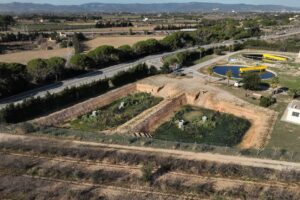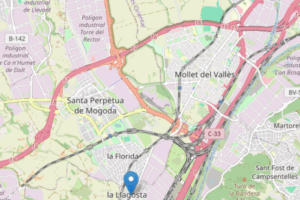
New system of mixed steel-concrete structures for construction
May 21, 2019
Architectural model of the Sagrada Familia’s Nativity Facade in 3D
May 23, 2019The Centre for Technological Innovation in Static Converters and Drives (CITCEA UPC), in collaboration with its spin-off Teknocea, has developed a smart system called IDPR (Intelligent Distribution Power Router).


This device can be used to address congestion and instability in the low voltage grid for the integration of renewable energies and distributed generation, new loads such as electric vehicles and storage systems. The device can also be used to manage batteries, so it has great potential in self-consumption environments and in future situations that could make way for changes in the regulatory framework for the energy sector.
The system has a greater capacity to supply the low voltage grid if the high voltage grid fails, which increases the reliability and quality of the supply. In addition, the IDPR is an excellent solution to improve the quality of supply to weak networks in rural environments that require considerable investment to improve them.
This innovation is one of the results of the Smart Rural Grid EU project, developed in conjunction with the company Estabanell Energia.
The project received funding in the fourth call for the “Knowledge Industry” programme, promoted by the Government of Catalonia’s Secretariat for Universities and Research in the Product phase, for the creation of prototypes and to recognise and transfer teams’ research results. The programme is also funded by the European Union through the European Regional Development Fund (ERDF).
The IDPR won an award in the latest edition of the CEEC Catalan Energy Efficiency Cluster as the best business technology project in the Product category.
Project Partners
Technology
Sector
Topic
You want to know more?
Related Projects
- The company Trace ID and the group Twin Investors, in collaboration with the Textile Technology research group (TECTEX), which is part of the Institute of Textile Research and Industrial Cooperation of Terrassa (INTEXTER) at the Universitat Politècnica de Catalunya - BarcelonaTech (UPC), are developing electronic devices to identify, monitor, and study the traceability of the products in which they are embedded.
- The Hydrogeology Group (GHS) at the Universitat Politècnica de Catalunya - BarcelonaTech (UPC) is participating in the LIFE REMAR project to develop an innovative and sustainable solution for the reuse of treated wastewater through infiltration, with the aim of increasing the availability of freshwater resources and improving the state of ecosystems.
- A team from the Environment Centre Laboratory (LCMA) of the Universitat Politècnica de Catalunya - BarcelonaTech (UPC) is taking part in a study commissioned by the city councils of la Llagosta, Mollet and Santa Perpètua (in Vallès Occidental), with the main objective of identifying the impact of industrial plants on the generation of unpleasant odours and continuously monitoring air quality in these municipalities.
- A multidisciplinary team of researchers from the Research Group in Smart and Sustainable Resources and Industries (RIIS), the Sustainable Mining Research Group (GREMS), and the Construction Materials and Roads (MATCAR) group at the Universitat Politècnica de Catalunya – BarcelonaTech (UPC) is leading the VALORFIN project. The aim is to develop a technological solution for the valorisation of the fine fraction of construction and demolition waste (CDW), transforming it into new low-CO₂-emission cementitious materials, while also reducing the presence of hazardous materials in this waste.




